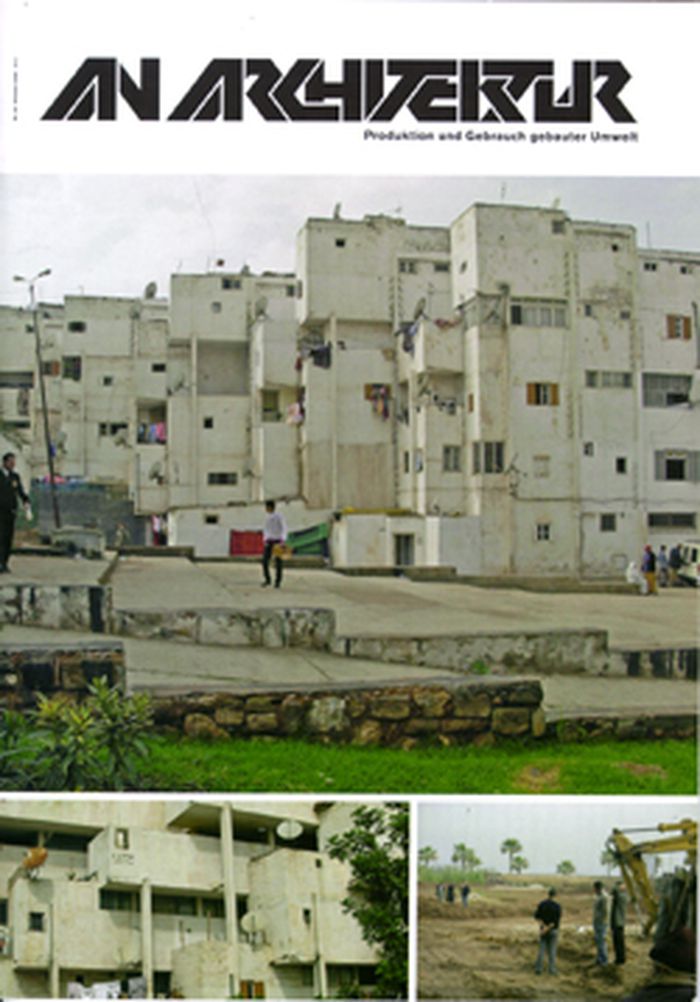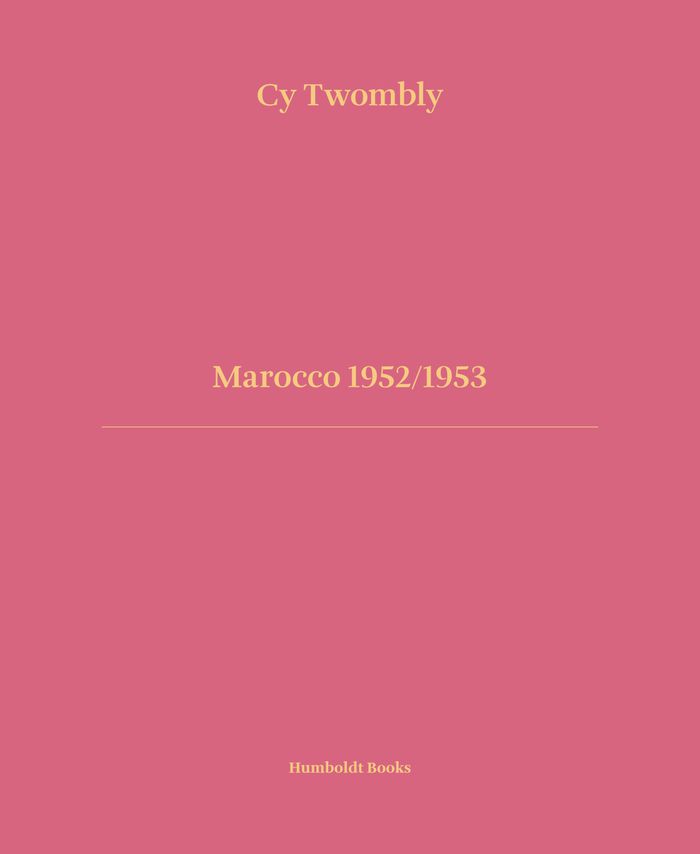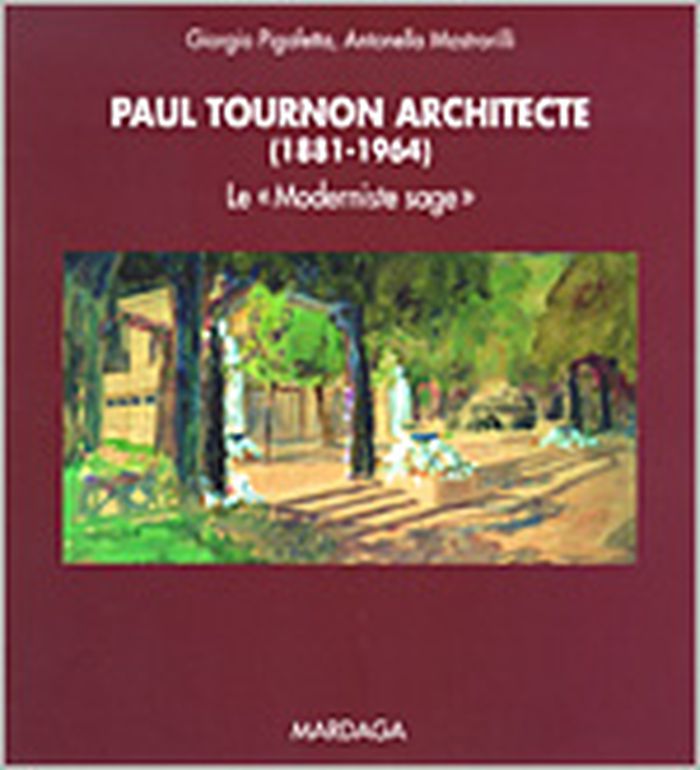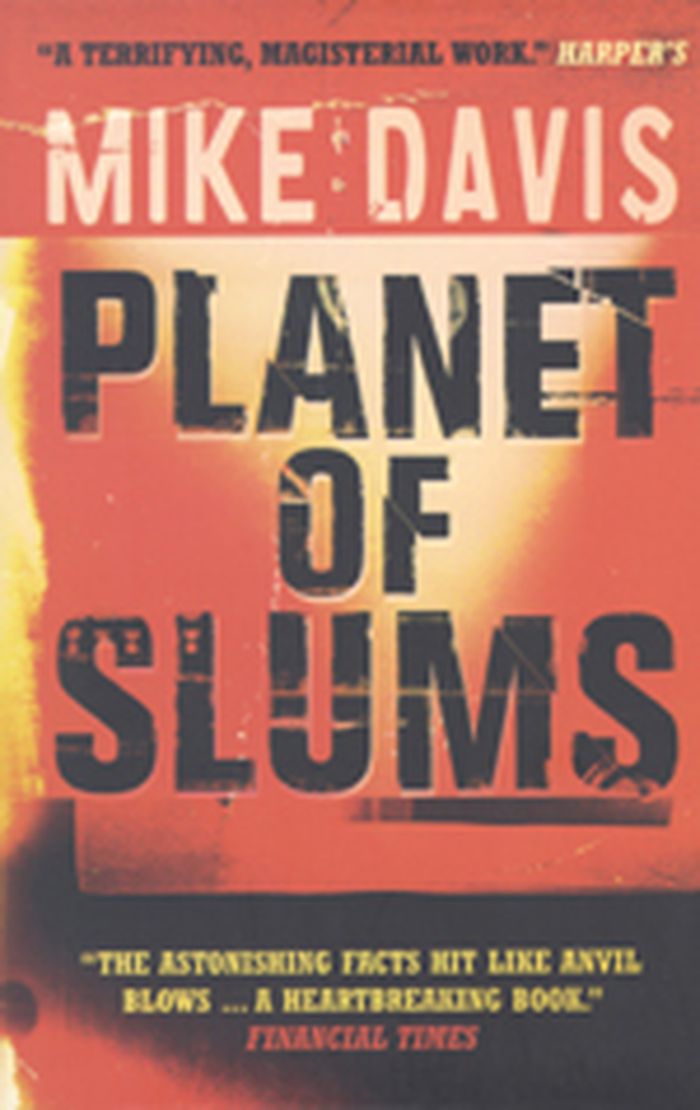$18.50
(available to order)
Summary:
22 GAMMA Grid, 1953. The End of CIAM and the Bidonvilles of Casablanca For a short time in the 1950s the planning practices of European architects in North Africa and their studies of everyday life in the bidonvilles were of central importance in the CIAM debates about a redefinition of the modern movement. In spite of their great interest in the reality of life in(...)
Anarchitektur: produktion und gebrauch gebauter umwelt
Actions:
Price:
$18.50
(available to order)
Summary:
22 GAMMA Grid, 1953. The End of CIAM and the Bidonvilles of Casablanca For a short time in the 1950s the planning practices of European architects in North Africa and their studies of everyday life in the bidonvilles were of central importance in the CIAM debates about a redefinition of the modern movement. In spite of their great interest in the reality of life in Casablanca´s bidonvilles as analyzed in the GAMMA grid, the architects ignored the colonial conditions of their research: the repressive nature of the regime as well as the anti-colonial struggles. While opening up a discussion about an architecture that includes the local and thinks about processes and users, this study is also exemplary for the dilemma of post-war modernism, that of giving mainly aesthetic answers to social and political questions.
Magazines
$60.00
(available to order)
Summary:
« Kiss landing » est un ouvrage qui rassemble des photographies réalisées sur une période de 10 ans à Montréal et à Casablanca, deux villes entre lesquelles Fatine-Violette Sabiri fait l’aller-retour depuis son enfance. Le titre du livre, « Kiss landing », est un terme d’aviation qui désigne un type d’atterrissage où l’avion se pose délicatement sur le sol. S’il(...)
Fatine-Violette Sabiri : Kiss landing
Actions:
Price:
$60.00
(available to order)
Summary:
« Kiss landing » est un ouvrage qui rassemble des photographies réalisées sur une période de 10 ans à Montréal et à Casablanca, deux villes entre lesquelles Fatine-Violette Sabiri fait l’aller-retour depuis son enfance. Le titre du livre, « Kiss landing », est un terme d’aviation qui désigne un type d’atterrissage où l’avion se pose délicatement sur le sol. S’il bouscule moins les passagers, cet atterrissage tend en revanche à endommager les roues de l’appareil puisqu’il en brûle le caoutchouc. La métaphore, ici, exprime avec justesse le sentiment de se trouver entre les deux villes dont la photographe est originaire : si la venue dans un pays est une promesse de retrouvailles, elle entraîne nécessairement une rupture avec le lieu que l’on quitte. Les portraits, paysages et natures mortes se trouvant dans « Kiss landing » s’intéressent aux notions d’amitié, d’hospitalité et d’intimité, tout en cherchant constamment à analyser la signification d’un « chez-soi ».
Photography monographs
$38.95
(available to order)
Summary:
In the fall of 1952, Cy Twombly receives a traveling scholarship from the Virginia Museum of Fine Arts and leaves New York for his first trip to Europe and North Africa. He meets up with Robert Rauschenberg in Casablanca, and the two of them travel to Marrakech and the Atlas Mountains, and then to Tangier. They pay a visit to Paul Bowles in Tétouan and go on day trips(...)
Photography monographs
March 2023
Cy Twombly: Marocco 1952-1953
Actions:
Price:
$38.95
(available to order)
Summary:
In the fall of 1952, Cy Twombly receives a traveling scholarship from the Virginia Museum of Fine Arts and leaves New York for his first trip to Europe and North Africa. He meets up with Robert Rauschenberg in Casablanca, and the two of them travel to Marrakech and the Atlas Mountains, and then to Tangier. They pay a visit to Paul Bowles in Tétouan and go on day trips with him to nearby villages and Roman ruins. Twombly conducts his first and last archaeological excavation there. Upon their return to Rome in February 1953, Twombly studies and sketches the ethnographic objects and tribal artifacts he sees on display in the Museo Nazionale Preistorico Etnografico Luigi Pigorini. These sketches survive in the form of the North African Sketchbooks. Much of the surviving work from this trip consists of photographs taken with a Rolleiflex shared by the artists and sketches made by them, preserved in the archives of the Cy Twombly Foundation and Fondazione Nicola Del Roscio; they provide a unique perspective on Twombly's lesser-known affinity for Africa's Mediterranean shores.
Photography monographs
$73.00
(available to order)
Summary:
Paul Tournon (1881-1964) a été un protagoniste de l’architecture française du XXe siècle. Il a réalisé des pavillons d’exposition, des groupes scolaires ou hospitaliers, des immeubles d’habitation, des usines, des banques, des monastères ainsi que de nombreuses églises importantes à Paris et dans les colonies (Saint-Esprit à Paris, l’église de Villemomble, celle(...)
Architecture Monographs
February 2004, Sprimont
Paul Tournon architecte 1881-1964 : le moderniste sage
Actions:
Price:
$73.00
(available to order)
Summary:
Paul Tournon (1881-1964) a été un protagoniste de l’architecture française du XXe siècle. Il a réalisé des pavillons d’exposition, des groupes scolaires ou hospitaliers, des immeubles d’habitation, des usines, des banques, des monastères ainsi que de nombreuses églises importantes à Paris et dans les colonies (Saint-Esprit à Paris, l’église de Villemomble, celle d’Elisabethville, la cathédrale de Casablanca, etc.). Toutefois, malgré les projets prestigieux et considérables qui lui ont été confiés, Tournon suit le destin plus général de l’architecture traditionaliste à laquelle il appartient : son nom est, effectivement, presqu’inconnu et son œuvre est pratiquement absente des grandes synthèses historiographiques de l’architecture contemporaine. Cette étude se propose de rendre une place adéquate au personnage de Paul Tournon au sein d’un cadre interprétatif exempt de tout prévention idéologique mais tenant compte des catégories idéales d’art et de valeur auxquelles Tournon était lui-même attentif. Moderniste " sage ", prudent et mesuré, guidé par une foi religieuse profonde, Paul Tournon incarne parfaitement esprit de son temps comme cas emblématique de l’union entre les valeurs de la tradition et l’acceptation des ressources offertes par la modernité qui caractérise une bonne part de la culture architecturale traditionaliste.
Architecture Monographs
Planet of slums
$25.00
(available to order)
Summary:
Urban theorist Davis takes a global approach to documenting the astonishing depth of squalid poverty that dominates the lives of the planet's increasingly urban population, detailing poor urban communities from Cape Town and Caracas to Casablanca and Khartoum. Davis argues health, justice and social issues associated with gargantuan slums (the largest, in Mexico City, has(...)
Planet of slums
Actions:
Price:
$25.00
(available to order)
Summary:
Urban theorist Davis takes a global approach to documenting the astonishing depth of squalid poverty that dominates the lives of the planet's increasingly urban population, detailing poor urban communities from Cape Town and Caracas to Casablanca and Khartoum. Davis argues health, justice and social issues associated with gargantuan slums (the largest, in Mexico City, has an estimated population of 4 million) get overlooked in world politics: "The demonizing rhetorics of the various international 'wars' on terrorism, drugs, and crime are so much semantic apartheid: they construct epistemological walls around gecekondus, favelas, and chawls that disable any honest debate about the daily violence of economic exclusion." Though Davis focuses on individual communities, he presents statistics showing the skyrocketing population and number of "megaslums" (informally, "stinking mountains of shit" or, formally, "when shanty-towns and squatter communities merge in continuous belts of informal housing and poverty, usually on the urban periphery") since the 1960s. Layered over the hard numbers are a fascinating grid of specific area studies and sub-topics ranging from how the Olympics has spurred the forceful relocation of thousands (and, sometimes, hundreds of thousands) of the urban poor, to the conversion of formerly second world countries to third world status. Davis paints a bleak picture of the upward trend in urbanization and maintains a stark outlook for slum-dwellers' futures
Urban Theory




